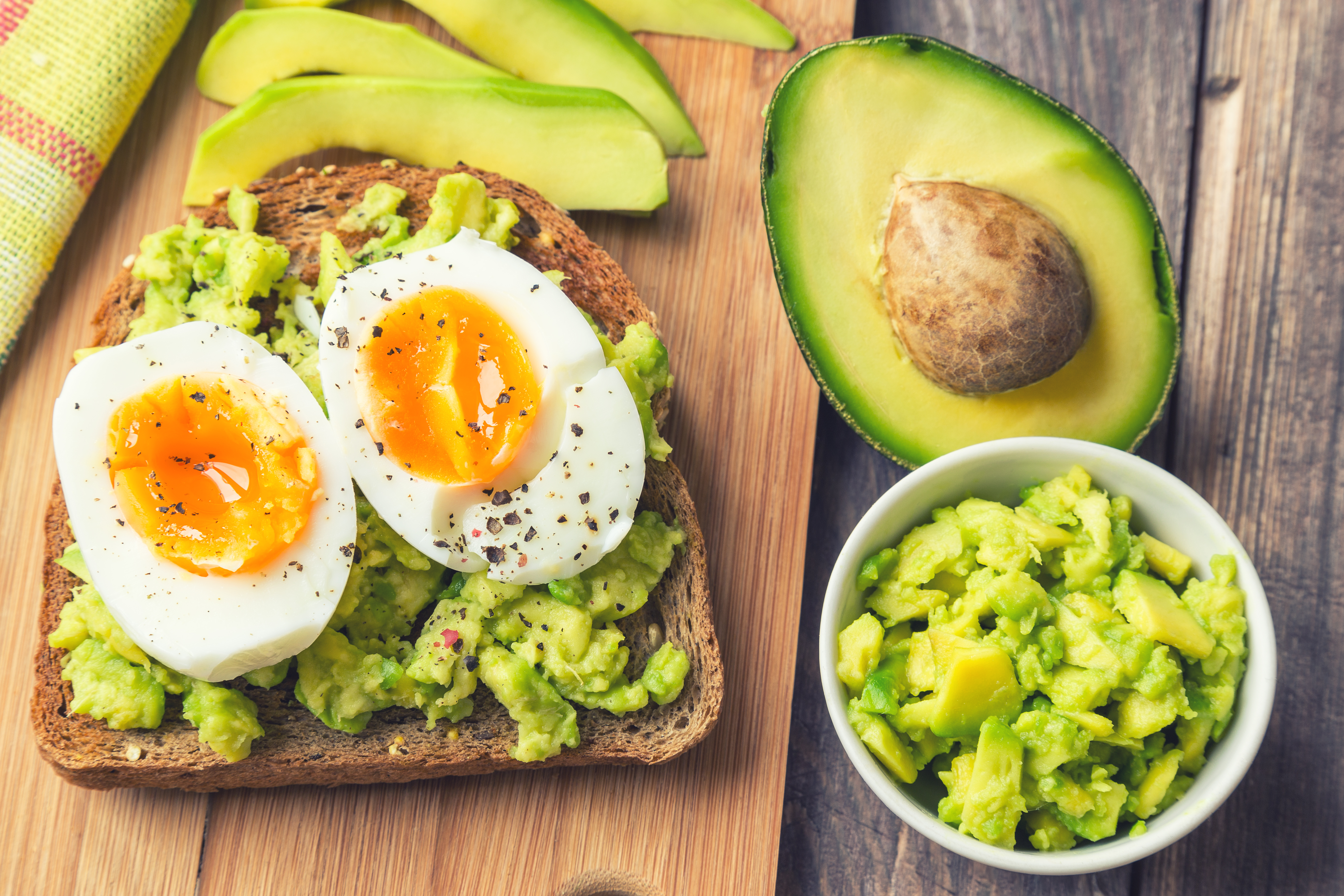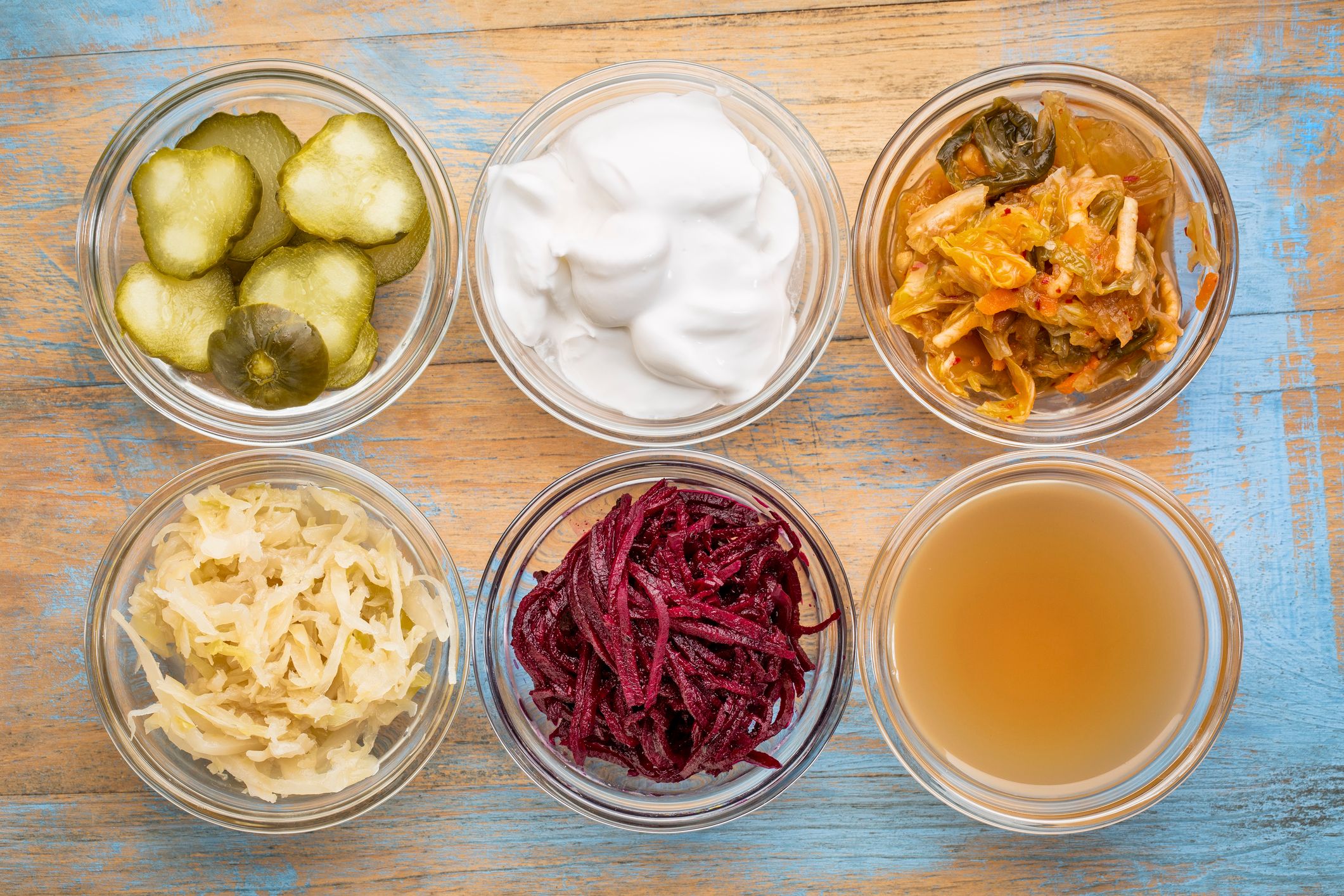

Share
25th July 2018
02:57pm BST

A diet high in fibre is linked to better digestion, lower blood pressure, longevity and even mood – so the sooner you get started, the better you’ll be feeling.
Fibre is also essential for anyone looking to lose weight.Government guidelines recommend that you should consume 30 grams of fibre per day. However, according to the NHS, on average that figure falls more around the 18 gram mark.
Here are five ways in which you can easily increase your intake:Keep track of what you eat
Keep a diary of what you eat, even if it’s just for one week. It will give you a much better insight into your eating patterns.
To prove more effective, note down the mood you’re in right before you eat. Our bad food choices are often emotional: boredom and anxiety are prime examples.
Top nutritionist Marilyn Glenville explains:
"By keeping a food diary you may discover that there are certain foods that trigger digestion issues, or it could be the time of day which makes them worse.
"For instance, when you are tired you may find your symptoms are linked to regularly stressful aspects of your week".

Make time for breakfast
Upon waking, you've typically been fasting for at least eight hours.
To get you moving, your body produces the stress hormone cortisol. This is a natural occurrence, but not one to extend until lunchtime.
Eating breakfast when you wake will stabilise blood sugar levels and stave off a mid-morning crash. There are also fewer healthy options available once you’ve left home - just think of those chocolate biscuits in the office cupboard.
Starting your day right with a meal such as eggs with avocado on toast. Half an avocado contains an impressive 6 grams of fibre.
Beans are also a great option. Porridge has a healthy reputation for a reason and will keep you full until lunchtime.
Start loving oats
Oats are filling, low-cost, and versatile. They are also one of the best sources of dietary fibre you can find.
They promote regular bowel movements and regulate blood sugar, meaning you can avoid those nasty afternoon slumps in energy and performance.
Whole grain porridge oats and oat-based muesli are great for a quick breakfast and whenever the urge to snack hits, reach for oatcakes instead of biscuits or crisps. Nairn's Oatcakes are a fine option.
Nutritionist Cassandra Barns says:
"The oats in oatcakes provide gentle fibre, which not only helps you stay regular, but also ‘feeds’ the friendly bacteria in the gut. These bacteria then make a substance called butyrate, which helps keep the lining of your gut healthy."

Try high-fibre alternatives to your favourite foods
The best diet is the one you can stick to.
Instead of feeling deprived, make informed choices when meal-planning. The free-from aisle isn’t just for people intolerant to gluten.
You could opt for products such as the artisan pastas made from high-fibre flours like quinoa and red lentil. Barns states:
"Thankfully, someone came up with the brilliant idea of making pasta from pulses such as peas and lentils.
"It’s up to three times higher in protein and in fibre than corn and rice pastas, meaning it will help to keep you fuller for longer – as well as being gluten free."
Use this simple hack for maximum gut health
Think of fibre and probiotics as the Batman & Robin of gut health.
Recent research has allowed scientists to understand a key part of how fibre enhances your immune system. While most fibre doesn’t actually feed the human body directly, it does provide nourishment to the millions of beneficial bacteria in your gut.
Studies suggest that a low-fibre diet causes the number of bacteria in our stomach to diminish dramatically, potentially leading to chronic inflammation.
The best practice for your health is to consume plenty of probiotic foods, which will introduce beneficial bacteria into your gut. Then let the fibre work its magic.
Examples of probiotic foods are fermented foods such as pickles, sauerkraut, kefir and kombucha.

The surprising role of self-care
When stressed, it’s easy to reach for comfort foods that are high in sugar, unhealthy fats and calories – but evidence points towards the fact that your mood is directly impacted by gut health.
If junk food makes you feel bad, and feeling bad makes you reach for junk food, you get locked in a vicious cycle and must break out of it. Barns says:
"When you're feeling stressed, digestion is not your body’s main priority. It’s therefore important to manage overall stress levels, whether it’s taking some time out from work or using practices such as meditation.
"If you’re at work, don’t eat at your desk – get away into a more calming environment."
Exercise is also hugely helpful for promoting a healthy gut."Movement stimulates the gut, and doing something you enjoy will help lower your stress levels", states Barns.
"As well as being relaxing, certain yoga positions or asanas can be helpful for encouraging digestion and relieving problems such as bloating and constipation. Perfect to wind down in the evening if you’ve had a stressful day".
For more weight loss advice, read JOE's Ditch the Dad Bod diet planExplore more on these topics: